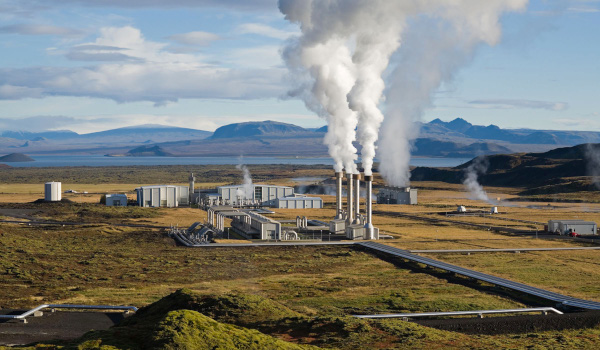From farm gate to server farm, harvesting a rich crop of data
After more than two chaotic years of dealing with misinformation and disinformation surrounding our response to the Covid-19 pandemic, we regularly hear calls for “evidence-based” policies and programs, which rely on data to derive their credibility. Such demands imply that information rooted in hard numbers will provide a more objective basis for how we spend our money and what resources we devote to various needs.
However, Kelly Bronson argues that we should be cautious about appeals to data objectivity. In her new book, The Immaculate Conception of Data, Bronson explores how many of us hold a false, idealized perception of data as handed down from heaven in some pristine form. Instead, data, Bronson insists, are generated by human-made systems that reflect the values of the people who created them.
Bronson, who holds the Canada Research Chair in Science and Society at the University of Ottawa’s Centre for Law, Technology, and Society, considers how this idealized perception of data is leading most observers to overlook the ways in which the world’s leading agricultural companies are increasingly like Facebook and Google in how they collect and use — and potentially misuse— big data.
This insight initially surprised Bronson, a former bench scientist whose interests turned to the social impacts of science and technology. Until a few years ago, she had been focusing on how genetically modified organisms (GMOs) were shaping global food production.
“I was looking at GMOs, and how they can be a good tool for a certain scale and type of farmer,” she told Research Money in an interview. “As well as how, because of their intellectual property and infrastructure, they create particular kinds of inequity in the food system.”
Her thinking changed in 2015, however, when a friend pointed out that major firms in the agri-food sector were beginning to invest in the latest big data innovations, as opposed to further developing GMO technologies.
“I had thought about big data, because I was an Internet user, but I had never connected it to agriculture,” she said, adding that she subsequently began exploring the financial movements of such companies.
“I noticed that the patents on Monsanto’s Roundup-ready seeds were coming due in 2022, but I also noticed that companies like Monsanto — which is now Bayer-Monsanto — were investing more in data science,” she explained.
In 2013, for example, Monsanto paid almost $1 billion to acquire Climate Corporation, which was employing AI learning networks to predict weather and other environmental factors relevant to agriculture.
The sound of silence
Such discoveries piqued Bronson’s curiosity, but what struck her as even more significant was the lack of any critical discussion about the new direction of agri-food’s major players. She contrasts this silence with the maelstrom of highly public criticism and debate that continues to swirl around the political, economic, and social effects of the uses of social media big-data by enterprises like Facebook, Amazon, or Apple.
“All of us know about Facebook, but many of us don’t see these agribusinesses as tech companies,” she pointed out. “We ought to be paying attention to agricultural data, because this is a move industry is making, for good reason, because this is a new avenue for profit generation.”
Her book explores the evolution of this sector, which mirrors the dramatic transformation of global agriculture in the 20th century. Companies like Monsanto began as chemical producers that transitioned to the forefront of industrial-scale fertilizer manufacturing, which drove the “green revolution” that allowed farmers to feed a world whose population would expand by more than five billion in a matter of decades.
The next area of promising agricultural investment came near the end of the century, as life sciences progress introduced genetic modifications to improve the yield of many of the most widely planted crop varieties. Farmers have engaged in cross-breeding and hybridization for countless centuries, but these innovations in molecular biology added new possibilities, such as crops that would be immune to the effects of particular herbicides.
Bronson regards the embrace of big data as the next phase of this sector’s development. Although the role of GMOs and other biochemical innovations remain a hot topic for advocates and opponents alike, firms like Monsanto may have found an even more promising new frontier.
“It’s just a company trying to maximize profit, but it’s a very powerful company in terms of its market share,” she said. “You have big businesses like this collecting the bulk of data, because they have a historic relationship with the bulk of farmers in North America and Europe, and cooperation with other very powerful companies collecting data. It allows them to push the agenda over time toward their vision of a good food system.”
The result is reflected in the findings of StatCan’s ongoing Census of Agriculture, which reveals the shrinking number and expanding size of Canadian farms. The most recent iteration of this survey portrays these operations not as small, family-run enterprises but corporations that observe the principles of any other large business.
“We see farms getting bigger and bigger, more incorporated, fewer farms, and the imprint on biodiversity and other environmental and social effects of industrial agriculture,” she said.
Read more: Reaping what we sow
About your next meal
For those of us who may be wondering what this means for how food gets to our plates, Bronson’s book outlines two distinct possibilities: community-based agricultural production and distribution of a wide range of locally produced commodities, or large, multinational output of a narrow range of the most profitable food products. Those prospects need not be mutually exclusive, but she warns that in absence of public discussion, the power of big data could overwhelm the ability of smaller producers to survive.
“The Monsantos have no interest in supporting that other model, because it’s not their market,” she said, adding that the challenge is compounded by the daunting technical complexity of AI systems. “The datasets, and the algorithms that are used to derive insights for farmers in support platforms, for example, even which companies are transferring data among themselves — all of it is in a black box.”
For that reason, Bronson emphasizes the importance of taking data off its pedestal, so that it is treated as useful but not perfect. In light of the sheer unprecedented size and power that technology giants have already obtained, she says, the need for this new perspective is urgent.
“There’s no accountability mechanism in Canada — no regulations for agricultural data — which is interesting, too, given the attention of privacy lawyers and human rights scholars to the misuses of Internet data,” she observed.
More worrying, to her, is just how little is being said about fundamental changes that could determine what and how we eat.
“Where are all the activists that convened around GMOs?” she asks. “Even critical data scholarship, which has been growing over the last five years, has been largely silent on agriculture. Will investments have been made and relationships set by the time people start paying attention, as has been done with Facebook?”
R$
| Organizations: | |
| People: | |
| Topics: |
Events For Leaders in
Science, Tech, Innovation, and Policy
Discuss and learn from those in the know at our virtual and in-person events.
See Upcoming Events
You have 0 free articles remaining.
Don't miss out - start your free trial today.
Start your FREE trial Already a member? Log in
By using this website, you agree to our use of cookies. We use cookies to provide you with a great experience and to help our website run effectively in accordance with our Privacy Policy and Terms of Service.





